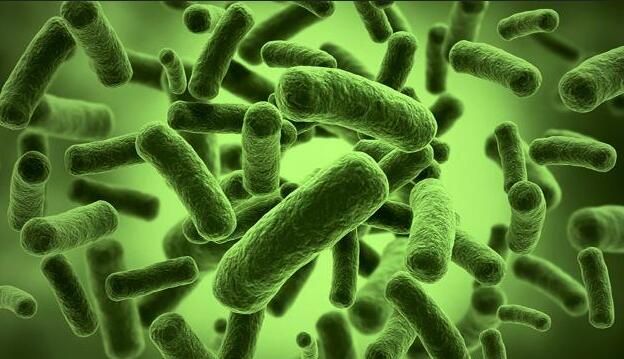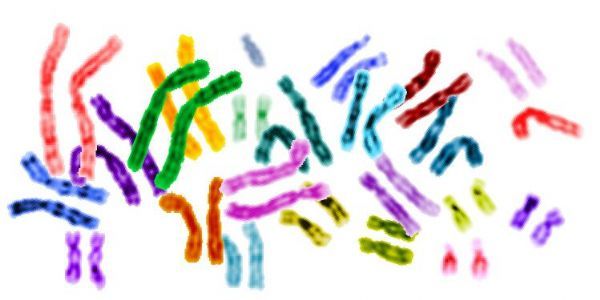选自:生物谷
如今随着肥胖率的不断增加,饮食和减肥产业目前美国就有大约700亿美元的价值,但我们很多人仍然对诱发体重增加的因素感到非常困惑;其中三个常见的因素就包括基因、肠道微生物组和机体的能量摄入,那么这三种因素到底在诱发肥胖上能占到多大比重呢?
图片来源:neurowiki2013.wikidot.com
基因
从物种层面上来讲,基因与肥胖发生还是存在一定关联的,但是对于个体而言,基因或许并没有我们想象中那么有影响;那么这又是为什么呢?
与灵长类动物相比,我们人类或许应该被称为“胖猿”(fat ape),与大猩猩和黑猩猩相比,我们机体的脂肪常常能够以脂肪的形式储存更多能量,因此如今人类已经进化到能够储存更多的能量来为机体大脑提供能量了。然而对于个体而言,基因或许并没有扮演如此重要的角色,截至目前为止,研究人员仅发现了大约100个基因与体重有关,而且这些因素加起来仅能解释不到3%的机体体重指数变化。
研究人员通过全基因组关联性研究鉴别出的与肥胖相关性最大的基因为FTO基因,BMI增加的FTO突变相对常见一些,其在大约42%的人群中都存在。然而FTO基因仅能够解释0.3%的BMI差异,而最新研究显示,携带这些突变体的人群能够通过少吃多动的方式来轻松减肥。
因此,我们需要知道的是,基因或许并不是独立运作来增加体重的,其能与我们所摄入的食物以及运动来相互协调,从而调节机体的体重。

图片来源:emptycagesdesign.org
肠道微生物组
我们的机体中存在着大约30万亿左右的细菌,很多细菌生活在机体肠道中,其对包括肥胖在内的各种疾病都存在一定的影响,而且目前研究人员正在进行相关的研究。益生菌补充剂中含有一些活细菌,比如乳杆菌属,益生元是一种特殊类型的纤维,其能通过促进肠道中有益菌群的生长来改善肠道健康。
有研究表明,摄入3个月的益生菌补充剂能够将体重平均降低0.6公斤,而最近一项研究中,研究人员将益生菌和益生元疗法的数据进行结合分析后也得出了相似的结论,也就是说,进行益生元或益生菌治疗后,参与者的体重会发生下降。
而另一种能够改善肠道菌群的方法或许就是粪便移植了,然而研究人员在确定是否这种疗法的效果前,还需要进行大规模的系统性研究来评估粪便移植对机体体重减轻的影响效应。

图片来源:commons.wikimedia.org
千焦耳
我们通常会将摄入的能量比喻为卡路里,但其公制单位为千焦耳,1卡路里等于4.2千焦耳,从理论上来讲,如果你能将摄入的千焦耳降低10%,你就能够降低10%的体重,此前研究人员对117名健康参与者进行了为期两年多的研究,结果证实了上述理论的正确;相反,当研究人员对253名参与者进行为期两年多的研究后,他们发现,能量摄入水平的增加能够有效预测机体体重的增加。由于参与者的自我报告中低估了35%的能量摄入,因此研究人员对于个体的能量摄入必须进行谨慎客观地衡量。
因此,我们机体的基因和肠道微生物组都会影响机体体重的增加,但其所影响产生的效应相对温和,而从另一方面来讲,热量(千焦耳)或许掌握着控制机体体重调节的关键,当更多的卡路里(千焦耳)被用作食物而不是燃料时,机体体重就会增加。
(生物谷Bioon.com)
参考资料:
【1】Nyberg ST, Batty GD, Pentti J,et al. Obesity and loss of disease-free years owing to major non-communicable diseases: a multicohort study. Lancet Public Health. 2018 Aug 31. pii: S2468-2667(18)30139-7. doi:10.1016/S2468-2667(18)30139-7
【2】Pontzer H, Brown MH, Raichlen DA, et al. Metabolic acceleration and the evolution of human brain size and life history. Nature. 2016 May 19;533(7603):390-2. doi: 10.1038/nature17654
【3】Locke AE, Kahali B, Berndt SI, et al. Genetic studies of body mass index yield new insights for obesity biology. Nature. 2015 Feb 12;518(7538):197-206. doi: 10.1038/nature14177
【4】Ruth J.F. Loos,Giles S.H. Yeo. The bigger picture of FTO – the first GWAS-identified obesity gene. Nat Rev Endocrinol. 2014 Jan; 10(1): 51–61. doi:10.1038/nrendo.2013.227
【5】Katherine M Livingstone, George D Papandonatos,Jose C Florez, et al. FTO genotype and weight loss: systematic review and meta-analysis of 9563 individual participant data from eight randomised controlled trials BMJ, 2016; 354, doi:10.1136/bmj.i4707
【6】Ron Sender,Shai Fuchs,Ron Milo, et al. Are We Really Vastly Outnumbered? Revisiting the Ratio of Bacterial to Host Cells in Humans. Cell (2016) doi:10.1016/j.cell.2016.01.013
【7】Essays on health: microbes aren’t the enemy, they’re a big part of who we are
Amy Loughman, Tarsh Bates. July 3, 2017 4.08pm EDT
【8】H. Borgeraas, L. K. Johnson, J. Skattebu, et al. Effects of probiotics on body weight, body mass index,fat mass and fat percentage in subjects with overweightor obesity: a systematic review and meta-analysis ofrandomized controlled trials. Etiology and Pathophysiology (2018) doi:10.1111/obr.12626
【9】George KunnackaI John, Lin Wang, Julie Nanavati, et al. Dietary Alteration of the Gut Microbiome and Its Impact on Weight and Fat Mass: A Systematic Review and Meta-Analysis. Genes 2018, 9(3), 167; doi:10.3390/genes9030167
【10】Das SK, Roberts SB, Bhapkar MV, et al. Body-composition changes in the Comprehensive Assessment of Long-term Effects of Reducing Intake of Energy (CALERIE)-2 study: a 2-y randomized controlled trial of calorie restriction in nonobese humans. Am J Clin Nutr. 2017 Apr;105(4):913-927. doi: 10.3945/ajcn.116.137232
【11】Stice E, Durant S. Elevated objectively measured but not self-reported energy intake predicts future weight gain in adolescents. appetite. 2014 Oct;81:84-8. doi: 10.1016/j.appet.2014.06.012
【12】Hall KD, Guo J. Obesity Energetics: Body Weight Regulation and the Effects of Diet Composition. Gastroenterology. 2017 May;152(7):1718-1727.e3. doi: 10.1053/j.gastro.2017.01.052
【13】Genes, joules or gut bugs: which one is most to blame when it comes to weight gain?
Andrew Brown. September 17, 2018 4.11pm EDT
 测序宝
测序宝